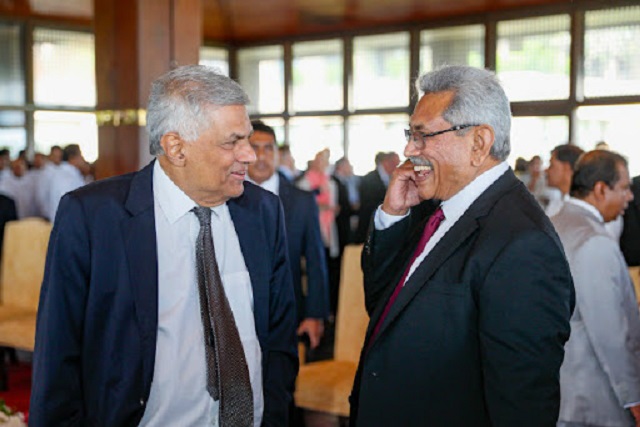
Writing in response to the appointment of Ranil Wickremesinghe as Sri Lanka's Prime Minister, Mario Arulthas, an advisor to People for Equality and Relief in Sri Lanka (PEARL), stresses that "without a fundamental restructuring of the state, Sri Lanka will simply repeat the past mistakes that got it there".
Arulthas explains that the current crisis Sri Lanka finds itself in follows an open embrace of "Sinhala-Buddhist supremacy" by the vast majority of Sinhalese voting in the Rajapaksa's during the 2019 Presidential election and granting them a two-thirds majority in the subsequent 2020 Parliamentary election. The embrace of this ethno-nationalist ideology underlies Sri Lanka's economic crisis, as Arulthas notes;
"The continuing protection and promotion of the Sinhala-Buddhist hegemony that has underpinned Sri Lanka’s economic policies since independence, means that successive governments have made fiscal policy decisions that are motivated by the desire to maintain the Sinhala-Buddhist ethnocracy, rather than what is in the best interest of the country’s economy and prosperity of all its citizens".
The Rajapaksa's, he writes "hold the unique record of being the most universally despised government in Sri Lanka’s history: despised by Tamils because of the genocidal attacks during the war and continuing oppression; despised by Muslims for enacting discriminatory policies and engineering ethnic riots against them; and now, despised by the Sinhalese for bringing economic disaster upon them".
"The appointment of Wickremesinghe as prime minister is widely seen as a move to allow President Gotabaya to continue in his position in the hope that the protests will eventually dissolve", he adds. He stresses however that this appointment has been met with little enthusiasm, particularly for Tamils, given Wickremesinghe's record.
"The former current prime minister has rejected accountability for war crimes and even claimed that he “saved Mahinda Rajapaksa from the electric chair” and protected state officials from being dragged in front of the International Criminal Court".
"He supports the foremost place that Buddhism occupies in the Sri Lankan constitution and is on the record rejecting federalism as a solution to the ethnic conflict – all key grievances of the Tamil people. When it comes to addressing the root causes of the ethnic conflict and the ongoing demands of Tamils for a political settlement, Wickremesinghe and the Rajapaksas are not that different," Arulthas further adds.
Read more about Wickremesinghe's record: The return of Ranil Wickremesinghe - Sri Lanka appoints a new prime minister
“When you set these precedent , yesterday it was the Tamils, today it’s the muslims ,
— Friends of Gajen (@friendsofgajen) April 19, 2021
Tomorrow it will be your own,
It will be your own because the people who you consider your competition , you will turn against them !!”@GGPonnambalam in parliament (03/12/20) pic.twitter.com/Uh6G0mhaYS
Responding to the crackdown on protests in the South, he notes the prescient of Gajen Ponnambalam, who warned that the state would turn on the Sinhala population. Yet, he notes that the repression faced in the South is "restrained compared to what Tamils have faced in the northeast".
Despite relative quiet in the North-East, police have threatened to shoot Tamil civilians gathered illegally. This comes as the Tamil homeland gathers to commemorate the tens of thousands of Tamil civilians killed during the final stages of the war.
"As preparations for commemorations of the Tamil war dead are underway across the northeast, stakes are high, and it will be an early test of Wickremesinghe’s premiership", Arulthas writes.
He also notes that "the reaction to the anti-Gota protests on May 18, usually marked by “victory” celebrations in the Sinhala south, will also be a crucial indicator of how receptive the protesters are to the concerns raised by Tamils, particularly if as expected the military continues to harass and intimidate those commemorating the day".
Arulthas concludes by writing:
"With an old prime minister occupying the post for the sixth time, what was obvious to Tamils should be obvious to the rest of the population – without a fundamental restructuring of the state that addresses the root causes of the ethnic conflict, and justice and accountability for the mass atrocities that occurred during the war, Sri Lanka is doomed to repeat its past, and stability and prosperity for all its citizens will remain elusive".
Read the full piece here.
